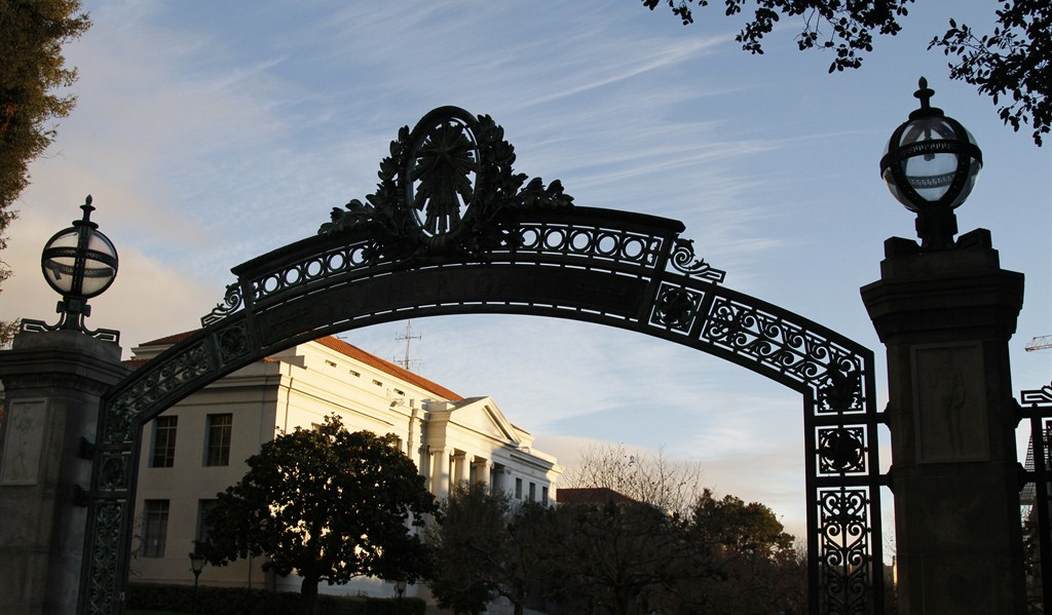The University of California Student Association has approved a resolution to direct UC regents to divest financially of the governments of Brazil, Egypt, Indonesia, Israel, Mexico, Russia, Turkey, Sri Lanka and the United States.
"UC students did not give consent to invest in governments engaged in violence against others," proclaimed the Resolution Toward Socially Responsible Investment at the University of California, targeting the above countries for human rights violations. The motion -- which passed with nine yes votes, one no vote and five abstentions -- faulted the U.S. government for conducting drone strikes abroad, as well as the nation's high incarceration rate and deportation policies.
My suggestion to these students would be that if they truly want to cleanse themselves from dirty American tax dollars, then they should not go to a state university or accept any grubby federal student aid. But it seems the whole point of being a UC student activist is to abandon all thought of regulating one's own behavior in furtherance of telling everyone else how they should live.
Student groups also have been protesting the regents' vote to raise tuition. This everything-but-the-kitchen-sink rant of a resolution, however, is exactly the sort of protest that makes some California taxpayers think: Why not let these spoiled know-it-alls pay more for an education that they do not appear to appreciate?
The student board also passed a resolution calling for the regents to divest of companies that do business with Israel. Student groups have passed similar proposals before, and their public demonstrations often include more than a hint of anti-Semitism.
Recommended
The regents basically rejected anti-Israel motions in 2010 by reminding students that in 2005, university leaders decided to divest of a foreign government "only when the United States government declares that a foreign regime is committing acts of genocide." In 2006, they voted unanimously to divest holdings in Sudanese companies with ties to the government-led genocide in Darfur.
"We must take great care that no one organization or country is held to a different standard than any other," wrote regents Russ Gould and Sherry Lansing with then-UC President Mark Yudof.
When the UC Davis student government passed an anti-Israel resolution by an 8-2-2 vote, one of the two no votes, Eugenia Chung, opposed the motion as having no place on campus. She told The Daily Californian in an email, "If the regents won't listen to students about the tuition raise, something (about which) we all unanimously agree, the UC regents will most definitely ignore this as well." That shows strategic thinking.
I asked Caitlin Quinn, a 21-year-old political science major at UC Berkeley and sponsor of the nine-country divestment measure: Wouldn't it make sense to narrow your agenda so that you can accomplish something? "I don't think it's fair to assume that students can only work on one issue," Quinn answered. Even if it doesn't pass this year, she said, in the long run the proposal should help shift "the social conscience."
I always wonder at students who dedicate so much time to far-left politics when I think they should be learning instead of lecturing. I asked Quinn: How often do you do homework? "A couple times a week, not as much as other students," she answered. For how long? "One or two hours a day when I study." Then she decided this wasn't "a very professional interview" and hung up.
More than half of UC students do not pay a dime in tuition, so we human-rights-flouting taxpayers would like to think that we are bankrolling a rigorous learning experience -- and not just four (or five) years of mindless protest.
I asked Jefferson Kuoch-Seng, who represents UC Merced, why he abstained. His student association, he told me, didn't get enough feedback to know how to represent the campus. "We have held town halls and public forums for students to come to speak, in which we did not receive a decent attendance." Finally, I get to report on UC students who have better things to do than write a long list of political demands. I'd like to think many of the no-show students were studying.
On Wednesday, New York Times columnist Frank Bruni wrote an inspirational column about the value of a liberal arts education. His transformative educational moment, he wrote, was watching a professor reading "King Lear." The columnist rightly sees his education as priceless. Bruni went on to cuff Ronald Reagan for declaring in 1967, when he was California governor, that taxpayers shouldn't be "subsidizing intellectual curiosity" and that "there are certain intellectual luxuries that perhaps we could do without."
What I wouldn't give to see some intellectual curiosity from student activists -- instead of endless protesting interrupted by maybe four hours of study per week.
























Join the conversation as a VIP Member